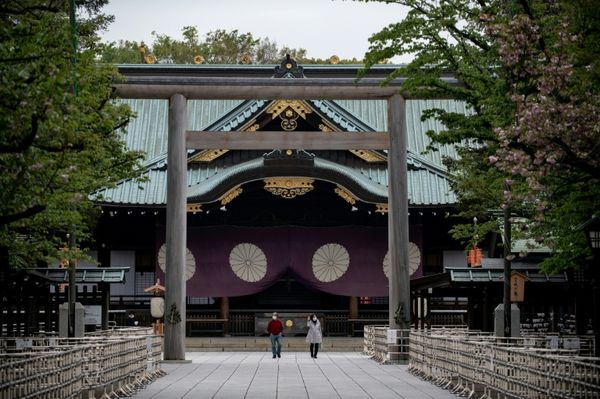
On the last Sunday afternoon of January, 20 school children strapped up in life vests got into canoes in Yilan. As they began to paddle in the local river, they appeared delighted that their handmade boats were actually floating. The kids had spent the last six days making their ride from scratch, nailing together plywood, stapling heavy-duty fabric over the frame, and coating the hull with layers of epoxy. They even made their own paddles.
And so when they finally got into the water, they were so thrilled that many of them forgot that they didn’t even know how to swim.

This was an event organized by the Lanyang Rafting Team, a grassroots initiative made up of a group of four friends with a mission to bring boat building skills to the greater Yilan area. “I want to help people create a relationship with the water,” says Huang Ping-shan, one of the co-organizers of the initiative.
Despite being an island, Taiwan doesn’t have much of a water sport culture. With the imposition of martial law, the coastline was controlled by the military for four decades starting from 1949. As recently as 2010, the majority of people in Taiwan did not know how to swim.

But growing up in Yilan, a county located near an inlet where the river meets the sea, Huang’s childhood was the exception to the rule. “When my dad was young, he would jump into the lake, play and catch fish and shrimp,” he says. “He would also go boating and river tracing.” Unlike many Taiwanese children who were urged to stay away from water, Huang was encouraged to play with it.
“When I was a kid, [my dad] would take me to the rivers to go swim,” he says.
But when he moved back home after years away, he was shocked to see many of the waterways that he grew up swimming in polluted and congested with trash. “There is trash everywhere,” he says.
In an attempt to foster an appreciation for the watering holes that were his childhood haunts, Huang got together three friends to start an educational initiative to teach local children to build canoes.

To lead the classes, they enlisted Wen Chih-jung, a multi-media educator who has been building boats for over a decade. Wen, who specializes in skin-on kayaks and canoes, started his boat building hobby without really knowing how to row a boat. But he liked the idea of the challenge and studied the blueprints online.
“At that time my daughter was nine and she said she also wanted to try,” he says. So he decided to modify the instructions so that it would be child-friendly. Making the frame for skin-on kayaks usually requires steaming heavy-duty wood so that it bends, but Wen decided to use plywood instead — a naturally bendable, light material that kids could easily pick up. To ensure durability, he uses super glue to piece together multiple layers of plywood.

In 2018, Wen circumnavigated Taiwan by sea on his homemade canoes with his daughter and a handful of other kids. The trip took him a month, and he’s since become a fixture in classrooms across Taiwan and has instructed a couple thousand students on the art of boat building.
“Many people here don’t realize we live on an island,” he says. “They think we’re on the mainland and don’t touch the ocean because of all the regulations back then. A lot of people are still scared of water. So I really think from making boats, children can find a lifestyle that’s appropriate for being on an island.”

In January, he was hired by the Lanyang Rafting Team to teach local middle school kids the art of making their own canoes. According to Chen Yi-hsuan, one of the co-organizers, it was not just a technical exercise in fusing together wood and glue, but a lesson in how to cooperate with one another.
“The teacher used the canoe as a way to teach the kids about themselves. They learned how to communicate with each other,” she says. “It’s much more than just making boats.”
READ NEXT: How Taiwan’s Largest Wet Market Was Torn Down and Came Back Stronger Than Ever
TNL Editor: Nicholas Haggerty, Bryan Chou (@thenewslensintl)
If you enjoyed this article and want to receive more story updates in your news feed, please be sure to follow our Facebook.







